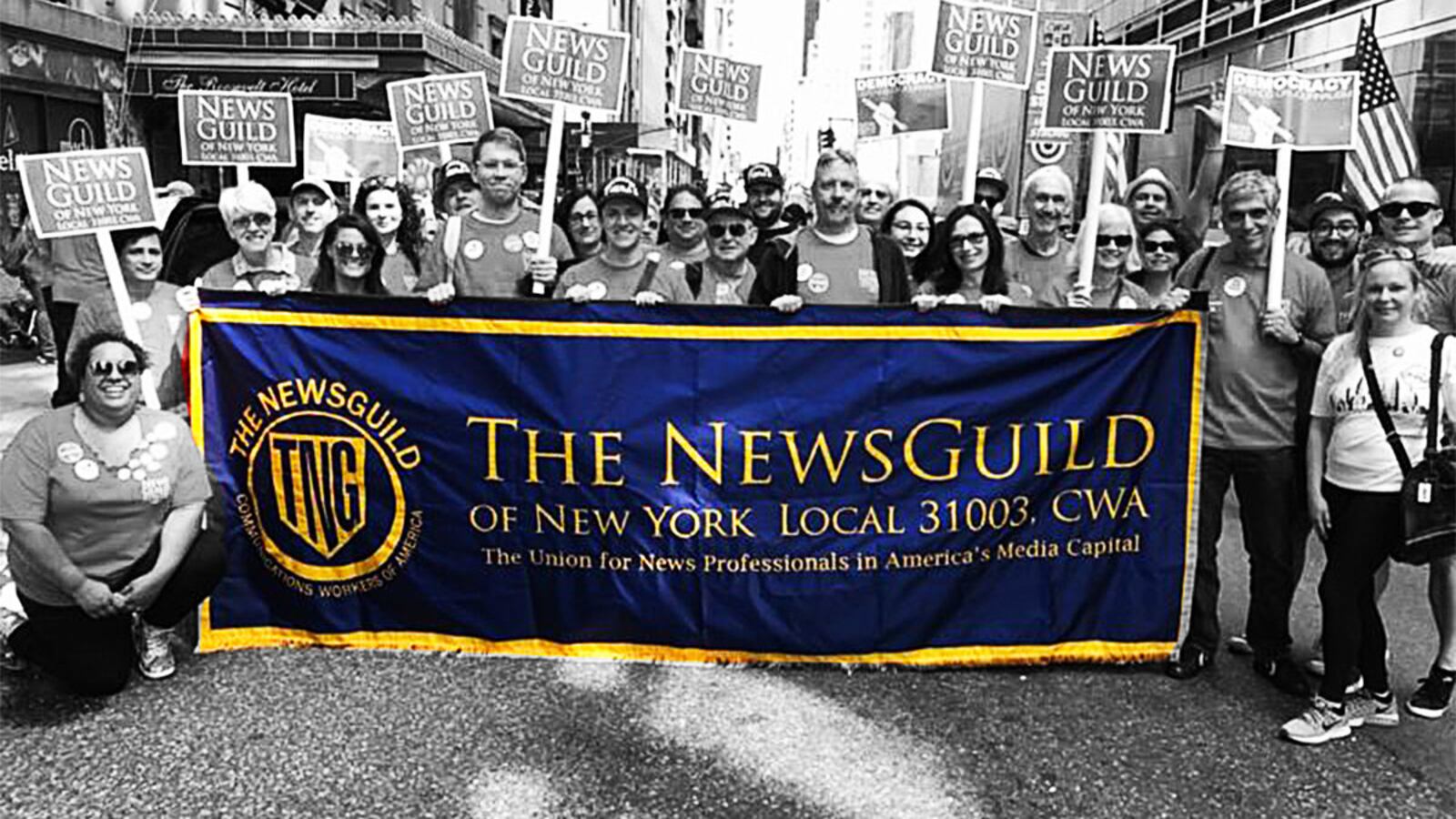The top media union in North America is launching a historic advocacy campaign in a desperate effort to gin up political support to help stave off the economic crunch on the news industry.
The effort being undertaken by the 30,000-plus member NewsGuild-CWA will involve a six-figure digital ad campaign, direct lobbying on Capitol Hill, and a new website where—among other things—laid off and furloughed journalists will chronicle the industry’s plights. The goal is both immediate and long term: to get Congress to OK giving direct grants to workers at news outlets; to expand access to the small business lending program so that newspaper chains can tap those funds; to persuade the federal government to start using its existing ad budgets to bolster struggling media entities; and, ultimately, to put an industry that has shed tens of thousands of jobs in recent months on stabler ground.
“The window isn’t closed,” said Jon Schleuss, the president of NewsGuild-CWA. “But it has gotten worse [in just the last month] and it is going to get worse every day.”
The campaign, bluntly titled “Save the News,” is unlike anything that NewsGuild-CWA has done in decades, officials say. And it puts the union in delicate territory: asking for direct assistance from the very political entities and officials that it covers. Schleuss acknowledged the discomfort that can come when an industry premised on telling other people’s stories of suffering now is being forced to chronicle and promote its own. But with newspapers hit hard by slash-and-cut-minded ownership and ad revenues being lost because of the economic downturn caused by the spread of the coronavirus, there are, simply put, few remaining options.
“It has been a challenge for our industry in marketing ourselves that we aren’t telling the stories that what we have done has positively impacted communities,” Schleuss said.
As part of the “Save the News” campaign, NewsGuild-CWA is planning to, in Schleuss’ words, “build out a mini newsroom atop the union” to essentially report out the turns of the media industry. The union will turn to some of the journalists who lost their jobs because of COVID-19 to help with that task.
The ad campaign—which is being funded by a grant from the parent union, Communications Workers for America—is going to target areas “where there is bipartisan need for local news.” And the Hill advocacy efforts will be focused on building support from all corners to ensure that some form of industry aid is included in the fourth package of COVID economic relief that lawmakers are currently cobbling together. The union has already looked into hiring a Republican-leaning lobbying firm to help shore up support on the Hill.
The hurdles are not small, and not just because there is historically little appetite among Republicans for spending taxpayer money shoring up the fourth estate. Already prone to launching broadsides on the press, President Donald Trump has only amplified those attacks as the pandemic has lingered, and his surrogates (including his son Eric this weekend) have gone so far as to accuse members of the media of manufacturing the crisis as a means of hurting Trump’s 2020 prospects.
Having portrayed the press corps as political actors and not, fundamentally, an industry that employs human beings, Trump seems almost predestined to oppose economic measures benefiting the media outlets. The one silver lining may be that not all Republicans feel the same. Some have signaled willingness to support measures to economically support local newspapers. And others have gone further: making the proactive case that having robust news operations at the local and state level is fundamentally good for democratic stability.
“At the end of the day,” said Schleuss, “I think a lot of these Republicans realize that they don’t want the last paper in the country to be The New York Times.”






